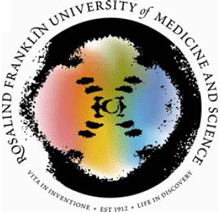Learning Community Faculty Mentor
 Rosalind Franklin University of Medicine & Science Rosalind Franklin University of Medicine & Science | |
 1000.00 To 10000.00 (USD) Annually
1000.00 To 10000.00 (USD) Annually
| |
 United States, Illinois, North Chicago | |
 Jun 27, 2025 Jun 27, 2025 | |
|
Compensation: $10,000.00 Annually Position Summary The Office of Student Affairs in the Chicago Medical School (CMS) at Rosalind Franklin University of Medicine and Science invites applications for four part-time Learning Community Faculty Mentor positions. Learning Community Faculty Mentors are responsible for providing longitudinal advising, mentoring, teaching, and social support to medical students. The learning communities at Chicago Medical School provide medical students with a familiar group of peers that lasts throughout medical school. Under the leadership of a Learning Community Faculty Mentor, approximately 48 students (one-fourth of each medical school class) develop trust and help one another adapt to the culture of medicine. Sixteen Learning Community Mentors link vertically with students in other classes through the four CMS Houses. Learning Community Faculty Mentors are expected to serve a four-year term. The annual faculty salary for this part-time position is $10,000/year, which will be divided into twenty-six equal payments per year for four years. About The learning communities at Chicago Medical School provide medical students with a familiar group of peers that lasts throughout medical school. CMS learning communities allow students to feel part of a dedicated cohort focused on co-curricular learning that is beneficial in terms of feeling supported and validated. Faculty Mentors collaborate with student leaders within the learning community to organize monthly meetings with the students focused on community building, professional development, wellness, and careers in medicine. Additionally, Faculty Mentors make themselves available for students to contact them to address personal and professional issues. Who We Are Rosalind Franklin University of Medicine and Science (RFUMS) is a six-college graduate health sciences university dedicated to the interprofessional education of health and biomedical professionals. Chicago Medical School, the original college of the six, has been educating physicians and furthering biomedical research for more than 100 years. Established in 1912, the founders built a combined medical school and hospital where working men and women could study medicine at night. As a community-based institution, CMS students experience a variety of clinical environments and models; including, inner-city and suburban hospitals, the James A. Lovell Federal Health Care Center that serves U.S. military personnel, as well as private clinics and practice settings. Training focuses on positioning patients at the center of care and as an active member of the healthcare team. During student didactic training, CMS' simulation labs allow students to sharpen their interactive and communication skills and develop critical reasoning. Students have early clinical contact, experience a supportive environment, and can count on a faculty dedicated to student success. Faculty and staff are passionate about CMS' mission to educate physicians and scientists dedicated to providing exemplary, compassionate patient care, and excellence in scientific discovery within a diverse, supportive, and interprofessional environment. Essential Duties & Responsibilities
Conditions of Employment
Required Education & Experience
Required Knowledge, Skills, & Abilities
Preferred Qualifications NA Typical Physical Demands & Working Conditions
EOE, Including Disability / Vets | |


